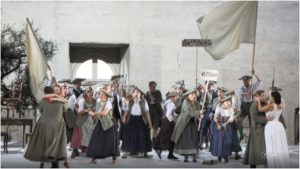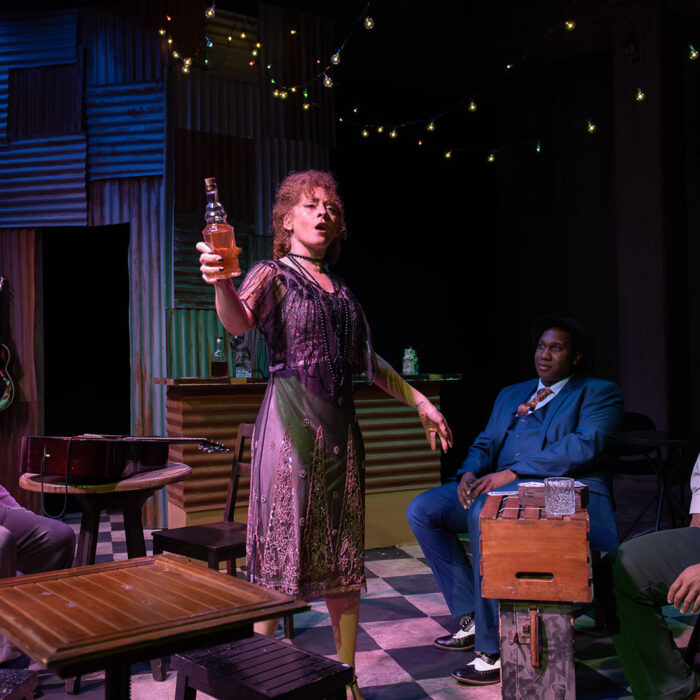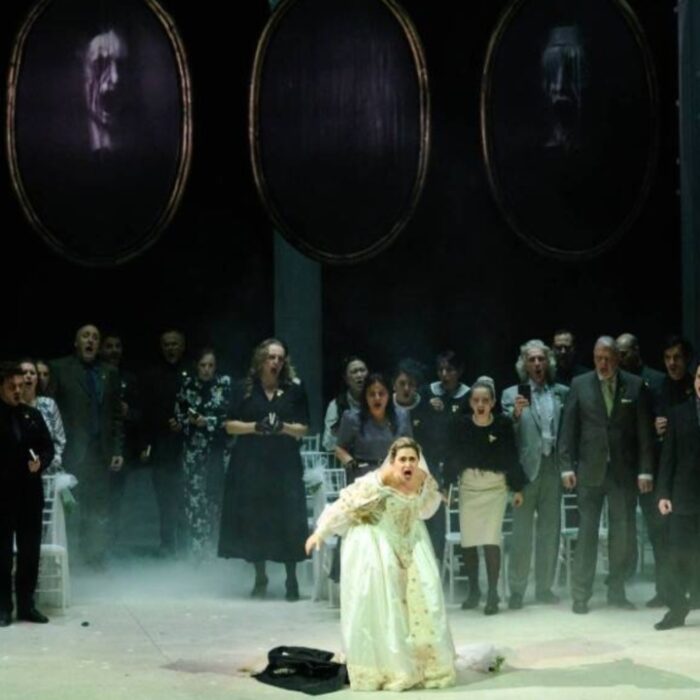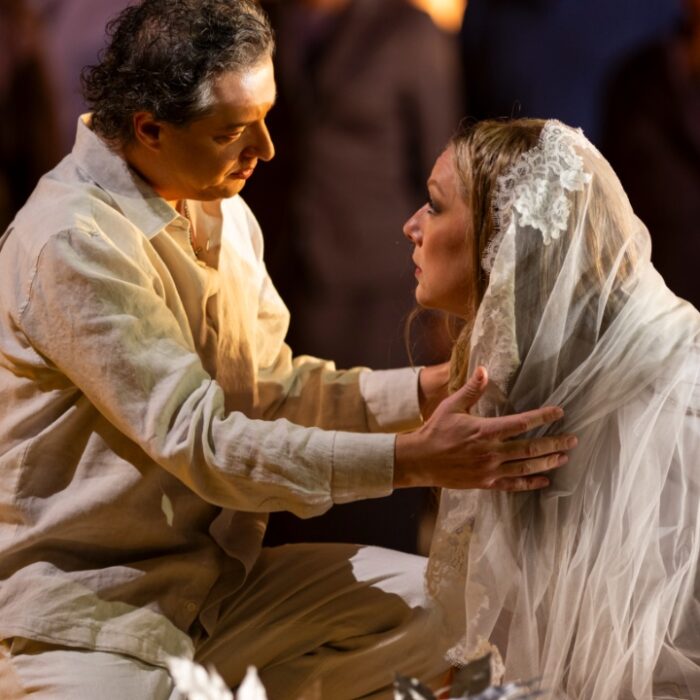
Bayerische Staatsoper 2017-18 Review – Così Fan Tutte: Eye-Catching Couples, Comedy and Camaraderie Display Mozart’s Magic
By Santosh Venkataraman“Così fan tutte” has often been a vehicle for some terrific singing as the third and final Mozart opera penned by Lorenzo Da Ponte. That was again the case Friday night at the Bayerische Staatsoper as a cast of rising stars showcased their respective talents in octogenarian Dieter Dorn’s production.
When something has lasted for almost a quarter century, there is usually good reason for it. Dorn’s “Così” first debuted in Munich in 1993 and is considered a timeless treasure at the Staatsoper. In the case of this production, it is its simplicity of a mostly white set as the backdrop for Mozart’s questions on faithfulness in relationships to be posed. This basic nature of the visuals serves to allow the performers to flourish.
This “Così,” in particular, has launched careers of numerous singers and all the principals successfully strutted their stuff with the eye-catching couples also looking the part as young lovers in bloom. Angela Brower (Dorabella) and Paulo Fanale (Ferrando) formed one unit with Ruzan Mantashyan (Fiordiligi) and John Chest (Guglielmo) the other.
Slow Start
It all begins with the wise Don Alfonso – portrayed by veteran baritone Pietro Spagnoli – debates the subject of the fidelity of women with soldiers Ferrando and Guglielmo. The opening didn’t come off completely convincing, with conductor Constantin Trinks and his orchestra seemingly fighting the action on stage in a situation that cropped up from time to time. What did happen was the establishment of Spagnoli’s Alfonso as the puppet master for the night: his comic timing and deadpan delivery set a dual tone of frivolity coupled with a pointed message.
Mantashyan was filling in for Anett Fritsch and the soprano came through with flying colors while in the midst of a run as Fiordiligi in Christophe Honore’s production in Opéra de Lille. That recent experience – she was scheduled for an appearance the day before in France – surely helped the soprano as she came off as a seasoned member of this group, effortlessly negotiating the ups and downs of her “Come scoglio” in the first act and delivering an even more effective “Per pietà, ben mio, perdona” later on. It’s important that Fiordiligi in many ways becomes the heartbeat of “Così” among the four lovers, and credit to Mantashyan for establishing herself as that. Brower looked like she enjoyed having the newcomer as a sister.
They showed tremendous chemistry in portraying the clueless sisters, clad in white like the men at the start. Brower has performed her Dorabella at numerous houses across Europe and she excels at displaying the coquettish nature of her character in contrast to the (slightly more) level-headed Fiordiligi. Brower’s “Il coro vi dono” duet with Chest was one of the night’s better moments.
On the Same Level
And just as Spagnoli’s Alfonso pulled the strings for the men, it was Hyesang Park’s
Despina doing the same for the women. Park’s lighter sound provided a nice contrast to the sisters and her comedic chops were also evident in how she cleverly moved through the different characters within Despina. Perhaps most surprising was the connection her Despina formed with Spagnoli’s Don Alfonso as the duo had as strong a camaraderie as either of the two couples – or is that four couples as the story goes?
The opera came to life with the introduction of the men as the “Albanians,” with Fanale and Chest indistinguishable in their disguises. Fanale’s “Un’aura amorosa” may have been the vocal highlight of the performance, with Trinks and his orchestra smartly stepping aside to allow the tenor to sweetly deliver his ode to love. The men brought on numerous laughs in the magnet scene to close the first act, with the doctor Despina employing the “therapy” after humorously going through her toolbox along with Alfonso.
Notable Touches
The Dorn production features some interesting conceits after intermission. One was right before Guglielmo’s showpiece aria of “Donne mie, la fate a tanti” when the lights in the opera house suddenly turned on, almost seemingly by mistake. It was no error, however, since the baritone Chest then begins his lament about the fickleness of women after he has successfully wooed Dorabella as the Albanian. Guglielmo dances off the stage and continues singing in the crowd in front of conductor Trinks. He even personally delivers his lines to women in the front row of the audience before a dramatic exit through an empty box.
If there’s any doubt about how much the audience’s belief should be suspended, it is erased when Fiordiligi eventually succumbs to the advances of Ferrando. Fanale isn’t even in disguise and would be immediately recognizable but the pair make it work as Fiordiligi’s waffling finally gives way to her desire for the soldier.
The marriage between the sisters and the “Albanians” is set inside a tent, with Despina’s notary stealing the scene at the start of the finale. The reveals at the end come off a bit heavy-handed and serious through Alfonso’s moralizing as opposed to being light-hearted.
It’s all a bit muddled if Alfonso’s lesson has been learned through the closing sextet. Yes, women may be “like that” to men but matters of the heart are, of course, infinitely more complicated. Is that the point of this opera after all? Only Mozart and Da Ponte know, but what we do know is that they combined to create a masterpiece.


